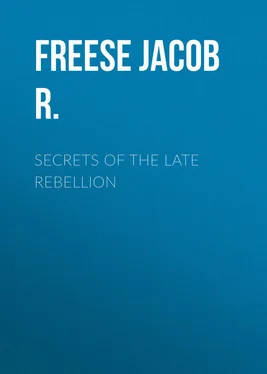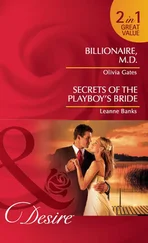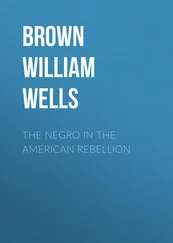Jacob Freese - Secrets of the Late Rebellion
Здесь есть возможность читать онлайн «Jacob Freese - Secrets of the Late Rebellion» — ознакомительный отрывок электронной книги совершенно бесплатно, а после прочтения отрывка купить полную версию. В некоторых случаях можно слушать аудио, скачать через торрент в формате fb2 и присутствует краткое содержание. Жанр: foreign_antique, foreign_prose, на английском языке. Описание произведения, (предисловие) а так же отзывы посетителей доступны на портале библиотеки ЛибКат.
- Название:Secrets of the Late Rebellion
- Автор:
- Жанр:
- Год:неизвестен
- ISBN:нет данных
- Рейтинг книги:3 / 5. Голосов: 1
-
Избранное:Добавить в избранное
- Отзывы:
-
Ваша оценка:
- 60
- 1
- 2
- 3
- 4
- 5
Secrets of the Late Rebellion: краткое содержание, описание и аннотация
Предлагаем к чтению аннотацию, описание, краткое содержание или предисловие (зависит от того, что написал сам автор книги «Secrets of the Late Rebellion»). Если вы не нашли необходимую информацию о книге — напишите в комментариях, мы постараемся отыскать её.
Secrets of the Late Rebellion — читать онлайн ознакомительный отрывок
Ниже представлен текст книги, разбитый по страницам. Система сохранения места последней прочитанной страницы, позволяет с удобством читать онлайн бесплатно книгу «Secrets of the Late Rebellion», без необходимости каждый раз заново искать на чём Вы остановились. Поставьте закладку, и сможете в любой момент перейти на страницу, на которой закончили чтение.
Интервал:
Закладка:
Not long after the time when Colonel Abercrombie had started on his first trip for Washington, President Davis sent for Colonel Killgore, and desired him to carry an order for arms and ammunition to Major Weightman, of Washington. He was directed, however, to await, at China Grove station, Colonel Abercrombie's return to that point, and then to go on or return to Richmond, according as the negotiation of Colonel Abercrombie had been successful or otherwise. Accordingly, when Messrs. Abercrombie, Lamb, and Waddell reached Mr. Randolph's, they found Colonel Killgore awaiting them. A consultation resulted in sending him forward on his mission with all convenient speed.
His general route was the same as that over which our three travellers had just passed; his stopping places the same; his guides the same; and in due time he found himself in the rooms of the Confederacy at Ben Beveridge's. Ben sent for Major Weightman. To him Colonel Killgore delivered his orders, letters, and verbal messages; received from the Major whatever of information and messages he had to send to President Davis, and within six hours was ready to start on his return trip for Richmond. He returned as he went, and within five days from the time of leaving Washington stood in the presence of Mr. Davis, ready to give an account of his mission. Everything had been done to the entire satisfaction of the President, and the Colonel was directed to hold himself in constant readiness for like orders.
After this, Colonel Killgore made frequent trips between Richmond and Washington. Of course he wore a disguise, and acted the part of a green country bumpkin: and so well did he wear the one, and assume the other, that never, but on two occasions, did he meet with incidents worthy of special record.
The first of these occurred as follows: After delivering messages and documents to Major Weightman, he proceeded to Baltimore, to deliver others to Mr. Thomas. While at the Fountain Hotel it chanced that his false moustache became loose, or somewhat disarranged. He stepped before a mirror, in the public reading-room, to readjust it, and, while doing so, observed a gentleman watching him very closely. Leaving that hotel instantly, he went to Barnum's, but was scarcely there before he noticed the same gentleman, who had watched him in the other hotel, again eyeing him closely. Soon the gentleman stepped up to him, and called him by his first name. The Colonel immediately recognized him as an old army friend, whom he had not seen for many years, and whom he had little thought to meet there, and under such circumstances. The gentleman was a Southerner; recognized, and entirely approved of the Colonel's new position as Ambassador Extraordinary between high contracting parties; and in a little while after they were drinking the health of each other, and confusion to their enemies. The Colonel at first feared that one of Baker's detectives had discovered his disguise while he was arranging his moustache, as before related, and felt not a little relieved when his observer turned out to be a friend instead of an enemy. He never again adjusted his false moustache in the reading-room of a hotel.
The other incident occurred as follows: He had been to Washington, and was on his return to Richmond. Crossing the Potomac, at a point above the Great Falls, he was accosted by a man on the Virginia side, who wanted to know where he had come from, and where he was going? Colonel Killgore replied that he lived in Maryland, not far from the Falls, and was on his way to visit a friend on the Virginia side. Other conversation followed, until the Colonel thought his questioner was satisfied, though he meanwhile had fully made up his mind that his questioner was none other than one of General Baker's secret detectives. The Colonel finally bade his questioner good-bye, and started to leave, when his questioner cried out, "Stop! I believe you are a spy – you are my prisoner!"
"No, I am not!" answered Colonel Killgore, and instantly sent a bullet whizzing into the brain of his questioner. The man fell, and died at once. An examination of the papers upon his person proved him to be, as the Colonel had suspected, one of the captains of General Baker's National Detective force. His body was left precisely where it fell, while Colonel Killgore proceeded on his journey, and in due time arrived in Richmond. When the body of the captain was found, some days after, it was discovered that a bullet had pierced his brain; but it was not known then, nor, except to a very few, was it ever known afterwards, who sent it there. This is the first publication of the real facts of the case, though the newspapers of the time were full of suppositions, not one of which was true, or anywhere near true.
Colonel Killgore continued one of the conductors on this line until the line was closed. After the war he returned to Charleston, studied law, was admitted to practice, and when last heard from was doing a large and successful business, and was regarded as among the first men of the State.
CHAPTER V. NOBILITY AFTER THE NUGGETS. DIPLOMACY PROMPTING THE ACTORS
IN September, 1863, cotton was quoted in New York city at 70 cents, gold at $1.29. The first indicated the great want for cotton by the manufacturers of this country, of England, and of other parts of the world. The second indicated the want of confidence, then existing, among the moneyed men of the world in the stability of this government.
The great divorce trial then going on in the court of last resort – the Court of Arms – in which the South, as representing the wife, was complainant, and the North, as representing the husband, was defendant, had thus far been attended with varied success. In the first contest, at Fort Sumter, the wife spit fire at the husband, and the husband quickly succumbed. In the second contest, at Bull Run, the wife flew at the husband's eyes and ears, and he, to save both, ran back to Washington. In the next, General Lyon, on behalf of the father, made a dash at General Price, at Booneville, Mo., when the latter suddenly remembered that he was needed elsewhere and left without ceremony. In Western Virginia, General McClellan sprang for the scalp of General Garnett, when the latter concluded that some point nearer Richmond would be more healthy. And thus the trial had been dragging its slow length along, sometimes favorable to the complainant and sometimes to the defendant, up to the time mentioned at the opening of this chapter.
Meanwhile the children on both sides only seemed the more determined to win finally, the oftener they were defeated temporarily; and criminations and recriminations became harsher and fiercer on both sides. The children of the North sided with the father, and claimed that the letter of the original contract must be kept; that in that contract there was no provision for divorce, nor was it admissible now. The children of the South sided with the mother, and claimed that the father had ill-treated the mother, had outgrown the mother, because of advantages taken of her, and by every law, human and divine, she was entitled to a divorce. The children of the North claimed that even if a legal divorce was possible, an equitable division of the estate was impossible. That a considerable portion of the estate had been purchased with blood, or treasure, or both, since marriage, and was so located that division was impossible; that Texas, California, and New Mexico had cost thousands of lives and one hundred and thirty-five millions of dollars, and could not now be divided; that Louisiana and the free navigation of the Mississippi River had cost fifteen millions of dollars, and could not now be divided; that Florida had been purchased of Spain at a cost of six million dollars, and that it had cost twenty-five millions more to get the Seminole Indians out of its swamps, and that it could not now be divided. To all this the children of the South replied, that not only what the mother had brought to the estate, but all that had been since obtained, contiguous to that which she had before marriage, belonged of right to her and her alone, and that they would maintain her in this right against all comers: The children of the North further complained that over three millions of the children of the common household were held in bondage by Southern masters, and that they must be liberated ere we could hope to have permanent peace at home, or the respect of nations abroad. The children of the South replied that those held in bondage were the descendants of Ham, whom Noah, with God's approval, assigned to perpetual bondage to the sons of Shem and Japhet. To this the children of the North replied that the New Dispensation of Christ, teaching forgiveness to all, kindness to all, love to all, had done away with the Old Dispensation of "an eye for an eye and a tooth for a tooth," and that the command, "Come unto me all ye ends of the earth," included the black man no less than the white. The children of the South replied that they had not brought slavery into the family, nor would they drive it out, and if others of the household attempted to do so, they would maintain it; and thus, too, this question stood up to the time mentioned in the opening of this chapter.
Читать дальшеИнтервал:
Закладка:
Похожие книги на «Secrets of the Late Rebellion»
Представляем Вашему вниманию похожие книги на «Secrets of the Late Rebellion» списком для выбора. Мы отобрали схожую по названию и смыслу литературу в надежде предоставить читателям больше вариантов отыскать новые, интересные, ещё непрочитанные произведения.
Обсуждение, отзывы о книге «Secrets of the Late Rebellion» и просто собственные мнения читателей. Оставьте ваши комментарии, напишите, что Вы думаете о произведении, его смысле или главных героях. Укажите что конкретно понравилось, а что нет, и почему Вы так считаете.












